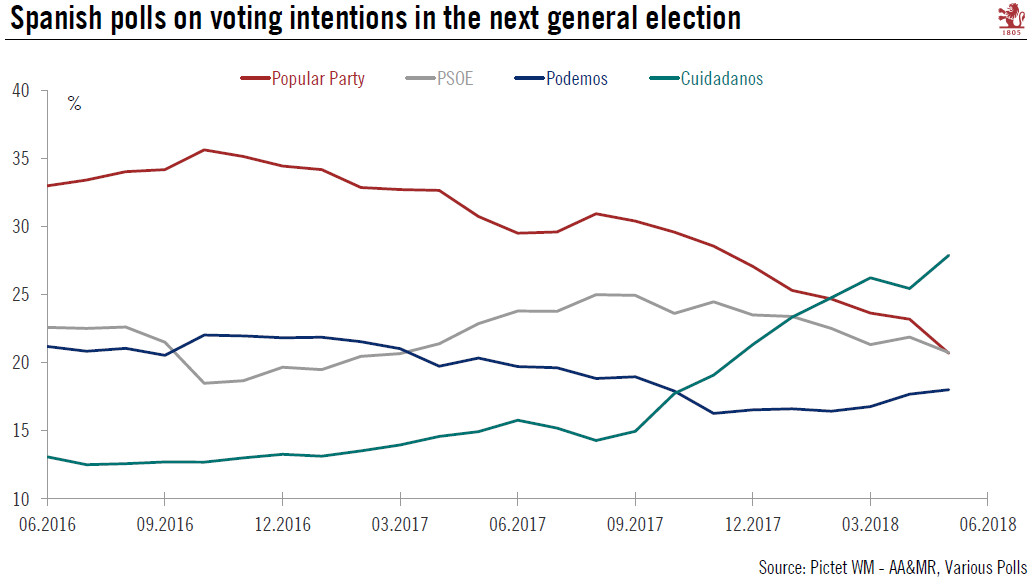A no-confidence motion could see the downfall of the government of Mariano Rajoy. But unlike Italy, any new election should not alter the pro-euro slant of the Spanish parliament.Political instability in Spain has added to turmoil in peripheral euro area countries. The situation is not comparable with Italy’s, but since it comes at the same time as a political crisis in the latter, it is increasing market volatility.Last Friday, Spain’s main opposition party, the Socialist party (PSOE) filed a no confidence vote against Prime Minister Mariano Rajoy. The debate will start on May 31 with a vote probably on June 1.All major opposition parties are calling for Rajoy to step down. Rajoy survived a no-confidence vote in June 2017 called by Podemos, but this time is different. The motion comes
Topics:
Nadia Gharbi considers the following as important: Macroview
This could be interesting, too:
Cesar Perez Ruiz writes Weekly View – Big Splits
Cesar Perez Ruiz writes Weekly View – Central Bank Halloween
Cesar Perez Ruiz writes Weekly View – Widening bottlenecks
Cesar Perez Ruiz writes Weekly View – Debt ceiling deadline postponed
A no-confidence motion could see the downfall of the government of Mariano Rajoy. But unlike Italy, any new election should not alter the pro-euro slant of the Spanish parliament.

Political instability in Spain has added to turmoil in peripheral euro area countries. The situation is not comparable with Italy’s, but since it comes at the same time as a political crisis in the latter, it is increasing market volatility.
Last Friday, Spain’s main opposition party, the Socialist party (PSOE) filed a no confidence vote against Prime Minister Mariano Rajoy. The debate will start on May 31 with a vote probably on June 1.
All major opposition parties are calling for Rajoy to step down. Rajoy survived a no-confidence vote in June 2017 called by Podemos, but this time is different. The motion comes just after a high court found Rajoy’s Popular Party (PP) guilty of involvement in a bribes-for-contracts network and the credibility of Mariano Rajoy’s own testimony was called into question.
It is still unclear how Socialist leader Pedro Sánchez will manage to secure the 176 votes required for the no-confidence motion to succeed. Sanchez will have no trouble securing votes from Podemos (67 seats) but he still need more support. Cuidadanos, the fourth-largest presence in the Spanish parliament, wants to unseat Rajoy but does not back the Socialist’s no-confidence motion. That said, all major opposition parties agree on the need to vote out Mariano Rajoy and to call snap elections. The disagreement is on how to do it.
In any cases, the ability of Rajoy to finish his term until 2020 is in serious doubt, increasing the chance to see snap elections in Spain. The uncertainty would likely consist in how and when the election is called. Having said that, there are increasing chances to see early elections in both Spain and Italy. But while in Italy the concern is that fresh elections could deliver an even stronger mandate for Italy’s anti-establishment, eurosceptic politicians, in Spain snap elections are likely to result in a hung parliament, albeit one with a pro-European stance.
